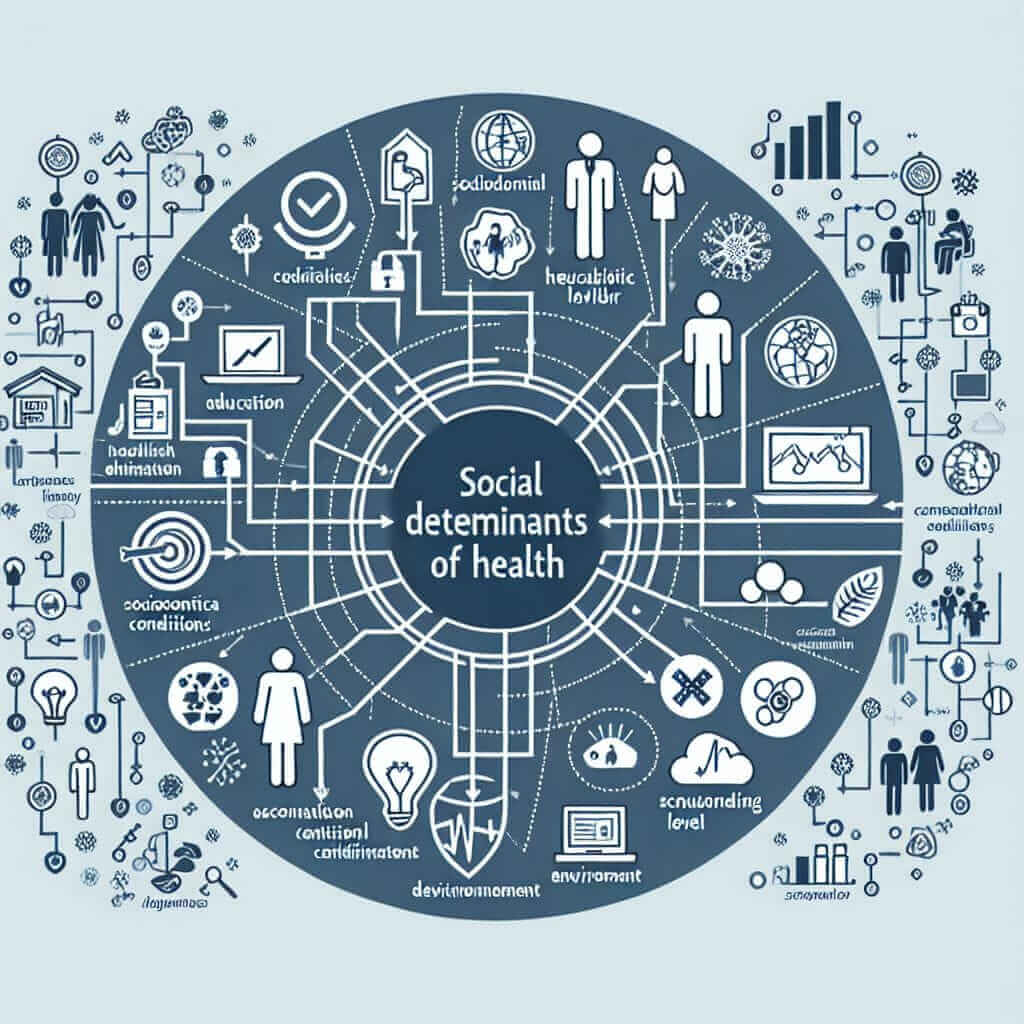The intersection of social inequality and health is a prominent topic in IELTS Writing Task 2. Examiners frequently ask you to analyze how socioeconomic factors influence individual and community well-being. This recurring theme underscores its importance in academic discourse.
Here are some potential IELTS Writing Task 2 questions you might encounter:
- To what extent do you agree or disagree that governments should prioritize reducing social inequality to improve overall health outcomes?
- Some people believe that individuals are responsible for their own health, while others argue that social factors play a more significant role. Discuss both views and give your own opinion.
- Analyze the impact of income inequality on access to healthcare and its subsequent effects on health outcomes.
Crafting a Band 8 Essay: A Sample Response
Let’s focus on the first question and develop a model essay showcasing the qualities of a Band 8 response:
Question: To what extent do you agree or disagree that governments should prioritize reducing social inequality to improve overall health outcomes?
Model Essay:
It is undeniable that a strong correlation exists between social inequality and poor health outcomes. While individual responsibility plays a part, I firmly believe that governments must prioritize tackling socioeconomic disparities to significantly enhance the health of their citizens.
Firstly, social inequality directly impacts access to healthcare. Individuals from disadvantaged backgrounds often face financial barriers to accessing quality medical services, preventative care, and essential medications. This results in delayed diagnoses, inadequate treatment, and ultimately, poorer health outcomes compared to their affluent counterparts. For instance, studies in the United States have shown that lower-income groups experience higher rates of chronic diseases like diabetes and heart disease, largely due to limited access to affordable healthcare.
Secondly, social inequalities create environments that are detrimental to health. Individuals living in poverty are more likely to reside in areas with higher crime rates, pollution, and limited access to healthy food options. These factors contribute to chronic stress, mental health issues, and unhealthy lifestyle choices, further exacerbating health disparities. Governments, therefore, have a responsibility to address these inequalities by investing in affordable housing, improving public safety, and promoting access to nutritious food choices for all citizens.

While individual choices undoubtedly influence health outcomes, these choices are often constrained by socioeconomic circumstances. Encouraging healthy lifestyles is important, but it cannot replace the need for systemic change. Governments must prioritize policies that promote income equality, improve access to quality education and healthcare, and create healthier living environments for everyone. By doing so, we can create a fairer and healthier society for all.
(Word count: 280)
Key Considerations for Your Essay:
- Structure: Maintain a clear structure with an introduction, body paragraphs (each focusing on a distinct argument), and a conclusion.
- Supporting Evidence: Bolster your arguments with relevant examples, studies, or statistics. This demonstrates a deeper understanding of the topic.
- Vocabulary: Use a wide range of vocabulary related to health and social inequality. Avoid repetition and aim for precision in your word choices.
- Grammar: Ensure accuracy in grammar and sentence structure. Complex sentence structures can showcase your language proficiency.
Challenging Vocabulary:
- Correlation (noun) /ˌkɒr.əˈleɪ.ʃən/: a connection between two or more things, often where one causes or influences the other.
- Disparities (noun) /dɪˈspær.ə.tiz/: noticeable differences or inequalities.
- Affluent (adjective) /ˈæf.lu.ənt/: wealthy and privileged.
- Chronic (adjective) /ˈkrɒn.ɪk/: persisting for a long time or recurring frequently.
- Detrimental (adjective) /ˌdet.rɪˈmen.təl/: causing harm or damage.
Conclusion
Mastering the topic of social inequality and health is crucial for success in IELTS Writing Task 2. Remember to analyze the question carefully, structure your essay logically, support your arguments with evidence, and use a sophisticated vocabulary range. By practicing these skills, you can confidently tackle this important and recurring theme in your IELTS exam.
Here are some additional related topics you might encounter:
- The role of education in promoting health equity.
- The impact of globalization on health disparities.
- The ethical considerations of healthcare access in an unequal society.